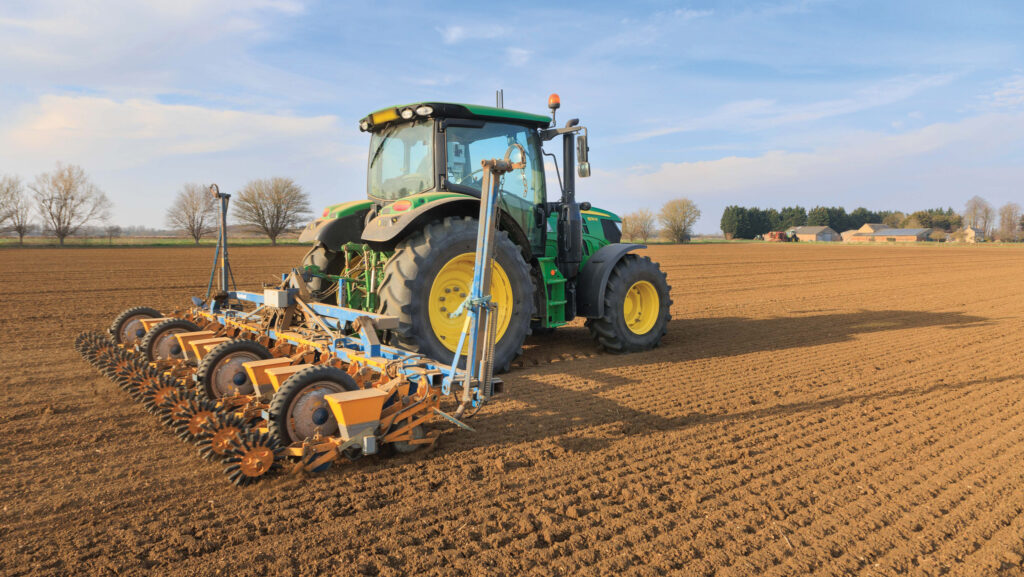Why the sugar beet deal could see a reduced 2026 crop area
 © Tim Scrivener
© Tim Scrivener At £30/t, the sugar beet price for next year is enough to keep the crop in the rotation, but most growers will scale back a bit, reduce the area grown and select fields accordingly.
That’s the majority reaction to the latest sugar beet price announcement, following agreement between NFU Sugar and British Sugar.
See also: Lower beet prices for 2026/27 as depressed sugar market hits
The headline figure of £30/t for up to 65% of the contract is better than many had feared, even though it’s a £3/t drop from the 2025 price.
What’s on offer?
- One-year fixed price at £30/t, for up to 65% of the contract
- One-year with a guaranteed base price of £25/t, plus a market-linked bonus for up to 100% of the contract
- Index-linked for up to 50% of the contract
Growers can choose to split their tonnage between any of these options. In addition, for those who want it, a one-year contract holiday for up to 750,000t is available on a first-come first-served basis.
There are also two other options, with growers free to use one or a combination of all three, depending on their individual situation.
The chance to take a one-year holiday from growing the crop is also on the table, with 75,000t on offer on a first-come first-served basis.
“While I’m confident that some growers can make money at this price, not everyone can at £30/t or £25/t, especially on lower yielding land,” says NFU Sugar Board chairman Kit Papworth.
“But this deal offers growers choices to suit individual circumstances. It balances challenging sugar market conditions with the increasing costs and risks of growing sugar beet in the UK.”
While there’s relief that the new price starts with a figure three and not a two, the reality is that the new pricing agreement is OK rather than enticing, says business consultant Richard Means of Ceres Rural.
“Remember, sugar beet is a higher risk crop than it was due to the loss of neonicotinoid seed treatments and the threat of virus yellows,” he explains.
Soil types
“For those sticking with it, a decision will need to be made about which fields and soil types to grow it on. For others, the chance to take a one-year holiday means they have nothing to lose.”
At least the announcement was made in time for growers to pursue other options, notes Richard, with oilseed rape already being a beneficiary on many farms.
“Given the headwinds and the performance of other commodity markets, we expect sugar beet to remain on many farms, albeit on a reduced area,” he says.
Sugar beet contract prices compared
- 2026-27 – £30/t
- 2025-26 – £33/t
- 2024-25 – £37.50/t
- 2023-24 – £40/t
- 2022-23 – £27/t
Farmer reaction
James Foskett, Woodbridge, Suffolk
James is not impressed with the deal struck with British Sugar and says the business will be growing less sugar beet next year.
“We’ve still got very high costs and as we’re on lighter land, our yields are always going to be lower than those on better soils,” he says.
Given the very hot and dry 2025 growing season, he used three acre-inches of irrigation on the crop, at a total cost of £225/acre.
“If that’s a sign of things to come, it will add to the costs of growing it as we move forward,” he says.
As a result, his sugar beet area for 2026-27 will be approximately 35% down on the current area, he says. “That’s already started; we’ve just taken 20ha out and put winter wheat in.”
Michael Paul, Kirton Estate, Ipswich
Michael’s reaction to the announcement is that the sugar beet price for 2026-27 is slightly better than he expected.
“It’s not great,” he says. “But given the rumours beforehand and the previous difficulties in getting a deal over the line, it’s not as bad as many feared it would be.”
He also anticipates a drop in the farm’s sugar beet area in 2026 by about a third.
“It will still be part of our rotation, for the same reasons as many other growers, but it’s a riskier crop than it was and we will be choosing the fields with care.”
Bruce Kerr, William Kerr Farms, Suffolk
The new deal incorporates something for everyone, with the three different contract options as well as the chance to take a one-year break, believes Bruce, who also farms in east Suffolk.
Individual farm circumstances mean that the decision to carry on growing beet will depend on a number of factors, he says, with soil type being an important consideration for yield performance.
“We will be growing sugar beet next year. It has worked well for us up until now, but we are always reviewing our cropping options and that won’t change.”
Andrew Francis, Nacton, Ipswich
The latest deal confirms that the search for alternative crops to sugar beet needs to intensify, says Andrew Francis of Home Farm, Nacton.
While the farm’s sugar beet area will stay roughly the same for next year, he doesn’t see prices rising in the following years and expects the crop to become far less attractive to growers as sugar increasingly becomes a scapegoat for societal problems.
“I’ve already made the decision to grow some oilseed rape instead this year,” he says. “At least the announcement came in time for us to make those plans and keep moving forward.”
With 26 different crops being grown on mainly light soils with the help of irrigation, Andrew appreciates that there are other options he can turn to.

